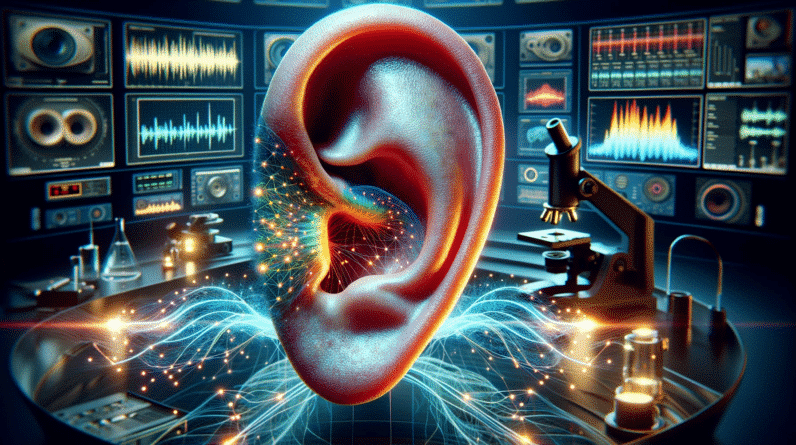We may earn money or products from the companies mentioned in this post.
As an Amazon Associate I earn from qualifying purchases.
Introduction
When it comes to common ailments, few are more elusive and frustrating than tinnitus. Characterized by a persistent ringing, buzzing, or humming sound in the ears, tinnitus can be, at best, a minor annoyance and, at worst, a significant disruption to daily life. As you navigate this journey, you may find yourself asking, What on earth is happening in my ears? But then, amidst this confusion, a beacon of hope presents itself: white noise. Many have touted it as an effective therapy for tinnitus, but does it really live up to the hype? Let’s delve deeper into understanding tinnitus and the role white noise may play in its management.
Understanding Tinnitus
What Causes Ear Tinnitus
The American Tinnitus Association defines tinnitus as the perception of sound in the ears when no external sound is present. A wide range of factors can contribute to triggering tinnitus. From age-related hearing loss or sudden exposure to loud noise to underlying health issues like migraines and high blood pressure—tinnitus can stem from various sources.
Key Symptoms for Tinnitus
Tinnitus is more than just ear ringing. It’s a broad term that encompasses a wide array of auditory disturbances. Some people describe it as a high-pitched hissing or buzzing noise in the ear(s), others as a constant pulsating rhythm, like a heartbeat. To add variety, such troubling noises can come and go, persist ceaselessly, or worsen at night—the sheer unpredictability can make diagnosis tricky. If you find yourself constantly asking everyone else in the room, “Can you hear that too?”, then you most likely have tinnitus.
A Look into Different Kinds of Tinnitus
Did you know there’s not just one, but several kinds of Tinnitus? Each comes with its own unique characteristics and symptoms. Among them, the most common types include subjective tinnitus—the kind only you can hear, and objective tinnitus— a rare form where an external observer (typically your doctor) can also hear the sounds. Don’t forget pulsatile tinnitus— this type presents as a thumping sound in rhythm with your heartbeats. In some cases, tinnitus can even be temporary or situational, emerging only in specific situations like after exposure to loud music at a concert.
Each type of tinnitus has its own complexities and nuances. Some may be an indicator of serious health concerns, while others may be a response to more benign triggers. Understanding these variations can bring us one step closer to effective management and treatment solutions.
What White Noise Actually Is
Definition
White noise might sound like technical jargon, but its concept is surprisingly simple. It’s a specific type of sound signal that’s produced when all frequencies of sound that the human ear can perceive are played simultaneously at the same level of intensity. Kind of like an auditory rainbow, if you will. This might remind you of the fuzzy static sound you hear on an untuned television or radio. That’s white noise for you!
The Impact of White Noise on Ear Ringing
When it comes to ear ringing (a common symptom of tinnitus), white noise has been credited as a comforting blanket of sound. It works by providing a sort of sound mask, covering up or ‘mixing’ with the unwanted noise in your ears. For many, this taste of silence can offer a sense of respite from the relentless buzzing or ringing caused by tinnitus, making white noise a common tool in auditory therapy.
The Relationship Between White Noise and Tinnitus
White Noise as Therapy for Tinnitus
Moving onto therapeutic solutions, white noise has made a name for itself within tinnitus management. While it may not ‘cure’ tinnitus, it definitely holds the potential to alleviate some of the discomfort associated with the condition. White noise and tinnitus have an interesting relationship. Utilized correctly, white noise can provide a soothing background soundtrack that drowns out the intrusive tinnitus sounds, thereby reducing the focus on the tinnitus and making it less noticeable over time.
Can White Noise Cause or Exacerbate Tinnitus?
It’s just as crucial, however, to keep an eye on the volume. Don’t crank up that white noise too high! Overexposure to loud noise, even if it’s white noise, can actually worsen tinnitus or potentially lead to noise-induced hearing loss. It’s all about finding a perfect balance where the white noise gently camouflages the tinnitus sounds without becoming a source of discomfort itself. Remember, when it comes to using white noise for tinnitus, moderation is key. As always, consult with an audiologist to guide you through the process.
Navigating Tinnitus Treatment
White Noise as Part of a Holistic Treatment Approach
Given the complex nature of tinnitus and the personal and unique way it affects each individual, it’s clear that a one-size-fits-all treatment approach may not always yield the desired results. How about integrating white noise as part of a larger, more holistic treatment plan for tinnitus? A personalized approach like this could be the golden ticket.
From stress management techniques to dietary changes, and now, white noise therapy, there’s an arsenal of tools at your disposal. And remember, marijuana for tinnitus is even gaining recognition as a possible remedy! Bringing these modalities together into a cohesive, personalized treatment plan could be what flips the switch from tinnitus-driven despair to empowered serenity.
The Role of Audiologists in Tinnitus Management
One key player in this journey towards tinnitus relief is your audiologist. Trained in tinnitus management, an audiologist can guide you with the right suggestions—whether it’s about using white noise for treatment or advising about the risks of excessive noise exposure. They can help you find a balance, making sure neither tinnitus nor the treatment itself is causing you more discomfort. So yes, you’re not alone in this battle against tinnitus!
Conclusion
We started with silence and ended with white noise, such is the fascinating journey of tinnitus understanding and management. The role of white noise in tinnitus is a beacon of hope, offering comfort and respite to those grappling with the tenacious and seemingly relentless buzz of tinnitus. But as we dive deeper into the realm of tinnitus, it’s evident that white noise is not a standalone cure, but definitely a valuable tool within a larger, holistic management plan. Remember, every tinnitus journey is as unique as you are, and your path to relief will be too. Whether it’s white noise, specific dietary changes, or even possibly marijuana, explore the options available, and most importantly, never hesitate to reach out to professionals like audiologists for advice and support. You’ve got this, and help is always available for you!
White Noise And Tinnitus - Frequently Asked Questions (FAQ)
Tinnitus is a common condition where a person experiences a ringing, buzzing, or humming sound in one or both ears when no such external sound is present. The frequency and severity of tinnitus vary between individuals.
White noise is a specific type of sound signal produced when all frequencies of sound that the human ear can perceive are played simultaneously at the same level of intensity.
White noise is often used as a therapeutic tool in managing tinnitus. It works by providing a background sound that can mask or cover up the ringing or buzzing noises produced by tinnitus, thus potentially reducing the discomfort associated with this condition.
There is no scientific evidence that white noise can worsen tinnitus. However, like any sound, if it’s played too loudly, it could potentially contribute to noise-induced hearing loss, which is a common cause of tinnitus.
Besides white noise, there are other types of ‘sound therapy’ that could help with tinnitus. This includes pink noise (a softer version of white noise), nature sounds (like rainfall or ocean waves), and even certain genres of music. A healthcare provider can help determine the most suitable option for each individual’s needs.
Amazon and the Amazon logo are trademarks of Amazon.com, Inc, or its affiliates.
Related posts:
- Unlocking the Secrets of Ear Pain and Ringing: Comprehensive Guide to Causes, Symptoms, and Breakthrough Relief Strategies
- Tinnitus Unmasked: Why Your Ear Has Been Ringing for Hours and How to Silence It
- Ear Ringing and Ear Pain: Your Ultimate Guide to Diagnosis and Treatment
- Understanding ADHD and Tinnitus: Is there a Connection?






